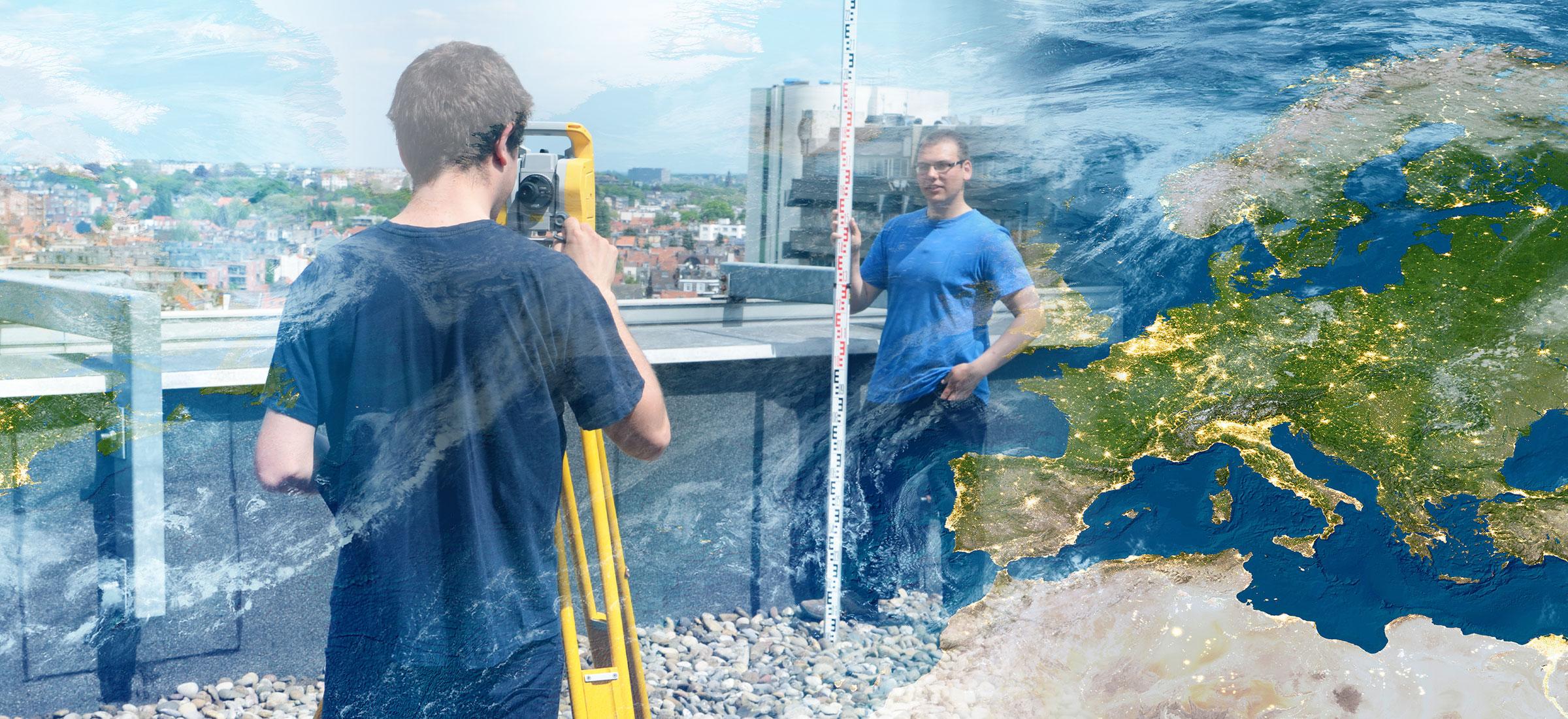
Your programme
The Master's programme in Geography offers you the opportunity to further specialise in your area of interest. You will choose two of the four modules: ‘Earth and Climate’, ‘Society and Space’, ‘Geo-information Sciences’, or ‘Mixed Methods’.

Frederik Priem | Alumnus master Geography, geospatial analyst, Flemish Institute for Scientific Research (VITO)
"A well-balanced mix of physical, social sciences and spatial modelling
skills is what attracted me to study geography and this is exactly what I got when I started out at VUB. I chose to specialise in Geo-information Sciences and spatial modelling, yet my master’s programme allowed me to explore other paths as well. My fields of interest were clearly reflected in the choice of my master’s thesis which focused on spatial analysis of rural poverty in southwest-Ethiopia, for which I had the opportunity to perform field work in this fascinating country.”
Fast forward to
Programme content
Besides a common core, a wide range of electives is available in this programme, allowing you to either delve deeper into a specific research domain or broaden your knowledge. This enables you to further specialise as a physical geographer, a human geographer, or to become an expert in geo-information processing. Alternatively, you can take a broader approach by choosing courses that link your geographical knowledge with other fields: meteorology, hydrology, tourism, spatial planning.
The two-year Master's in Geography is organised in collaboration with KU Leuven. Students from both universities attend classes two days a week at both institutions, providing access to a large pool of expertise.
You will choose two of the four following modules:
Earth and Climate
This module focuses on environmental processes such as global warming, ice and climate interaction, meteorology, and geomorphology. Students who choose this module, gain a deep understanding of the physical aspects of the environment and a synthetic view on environmental issues. Combined with strengthening courses, it will provide them with all the knowledge needed to understand and participate in geo-scientific research.
Society and Space
Given the imminent climate crisis and the ever-increasing impact of humans on our planet, a true understanding of how society and space relate to each other is needed. In this module students focus on the processes of economic development, urbanisation and urban development, policy and governance, but also on how use of the natural environment impacts social inequality. Through the strengthening courses, students can further specialise in themes such as sustainable development, tourism, the interdisciplinary field of urban studies or urban planning.
Geo-information Sciences
This module offers the latest methods and techniques for spatial data collection and data processing. You will become knowledgeable in spatial database technology and develop geospatial programming skills. You will also gain experience in remote sensing and become an expert in the use of spatial data in those fields where it matters most, such as environmental management, spatial planning and mobility.
Mixed Methods
How can we use big data to tackle complex urban problems? How can one model land use changes? What are state-the-art techniques for qualitative research? In this module you will become familiar with novel research approaches and get ample opportunity to apply the acquired methods in studying human-environment interactions.
Studying abroad - Exchange Programmes
During your master's programme, you can study abroad, conduct fieldwork for your thesis in places like Equatorial Africa, Asia, or European cities, or spend a semester at a European university. An internship abroad is also an option, giving you practical international experience. Embrace this opportunity to gain a global perspective and prepare for a career without borders. The world is your oyster!